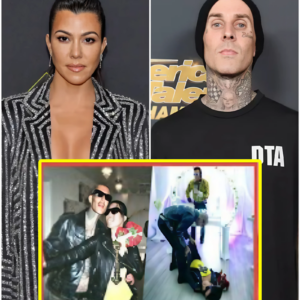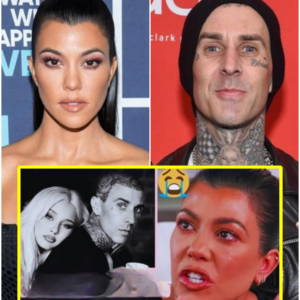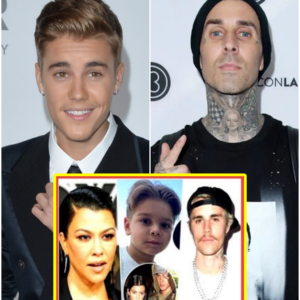Recent events in the rap industry have once again brought to light the complex and often sinister dynamics at play behind the scenes. Amidst the public feuds and tragic losses of young artists like Julio Fulio and others, voices like Cat Williams and Charleston White have raised critical questions about who truly benefits from the turmoil within the industry.
According to these critics, the real winners in these rap beefs aren’t the artists themselves, but rather the powerful figures behind the scenes—the record labels. Williams and White argue that record labels profit immensely from promoting beefs and violence among artists, turning these conflicts into lucrative opportunities while often disregarding the human cost.
“The cycle of violence and death in the rap industry isn’t random,” claims Cat Williams. He suggests that it’s all part of a calculated scheme to boost record sales and media attention, effectively sacrificing young artists for financial gain. Charleston White adds nuance to this narrative, acknowledging that while record labels do profit from the destructive narratives perpetuated in rap music, the artists themselves have a choice in whether to perpetuate these themes.
Moreover, there are allegations that some record labels deliberately sign artists who promote themes of gang culture and violence. This strategy, critics argue, not only perpetuates harmful stereotypes but also contributes to a culture where young artists feel pressured to conform to a dangerous lifestyle in order to achieve fame and success.
The impact of these decisions extends beyond music charts and into communities, where violence often spills over from lyrics into real-life consequences. Williams points out that every time a young rapper dies, there are individuals higher up in the industry benefiting financially from their demise. This grim reality underscores the commodification of tragedy within the entertainment business, where even deaths can be monetized.
The issue is further complicated by the alleged links between the music industry and the private prison system. A controversial email surfaced, suggesting that major record labels were encouraged to promote music that glorifies criminal behavior, particularly in genres like rap and hip-hop. The goal, according to the email, was to ensure a steady flow of inmates to fill privately owned prisons—a claim that, if true, underscores the systemic exploitation of cultural expression for financial gain.
Critics argue that these practices not only perpetuate harmful stereotypes but also exploit the creative expression of artists who may feel pressured to conform to industry expectations. This exploitation, they argue, contributes to a cycle of violence and incarceration that disproportionately affects black communities.
In conclusion, the rap industry’s dark underbelly raises significant ethical and moral questions about the role of record labels in promoting violence for profit. While artists may have agency in their creative decisions, the broader industry structures and financial incentives at play often dictate the narratives that dominate the airwaves. Addressing these issues requires a critical examination of industry practices and a commitment to promoting narratives that empower rather than exploit artists and their communities.
News
(B) Travis Barker MISSED when Kourtney Kardashian returned home drunk after Kardashians party. (VIDEO)…
Courtney Kardashian made headlines just seven weeks after giving birth when she decided to attend the annual Kardashian Jenner Christmas party sans pants. Despite recently welcoming her fourth child, Rocky, with boyfriend Travis Barker, Courtney seemed anything but tired as…
(B) Kourtney Kardashian Shocking Revelation on Why Her Relationship with Travis Barker Ended. (VIDEO)…
In the public eye, Travis Barker and Courtney Kardashian’s relationship was once perceived as an unbreakable union, filled with passion and devotion. However, recent revelations paint a vastly different picture, revealing the underlying turmoil that ultimately led to its demise….
(B) Kourtney Kardashian SECRET XTAPE With Minor Justin Bieber REVIEWED by The Feds. (VIDEO)
The recent discovery of a video purportedly featuring Courtney Kardashian and Justin Bieber has ignited a firestorm within the entertainment industry, prompting intense speculation about its potential ramifications. This revelation, coupled with reports of a raid on Diddy’s home, has…
(B) EXTREMELY SHOCKING: Kris Jenner Lied About DNA Test To Khloe Kardashian As O.J. Simpson Could Be Her Father. (VIDEO)..
In a moment etched into the memories of internet users, Chris Jenner once orchestrated a dramatic DNA test to dispel rumors surrounding Khloe Kardashian’s paternity. Speculations swirled, stemming from Jenner’s revelations in her memoir “Chris Jenner and All Things Kardashian,”…
(B) Kourtney Kardashian finally shows proof her son Reign Disick is actually Justin Bieber’s son. (VIDEO)..
Courtney Kardashian recently embarked on an exciting escapade to Australia and New Zealand with her husband, Travis Barker, for his tour. However, it was their youngest son, Rain, who stole the spotlight during their adventures. With his mischievous antics and…
(B) NEWS HOT; Travis Barker Found Evidence of Kourtney Shared Baby With Justin Bieber (video)…
The rumor mill surrounding Justin Bieber and the Kardashian family has been churning for quite some time, igniting speculation about his connections with various members. While the details are murky and often sensationalized, let’s delve into the complexities of these…
End of content
No more pages to load











